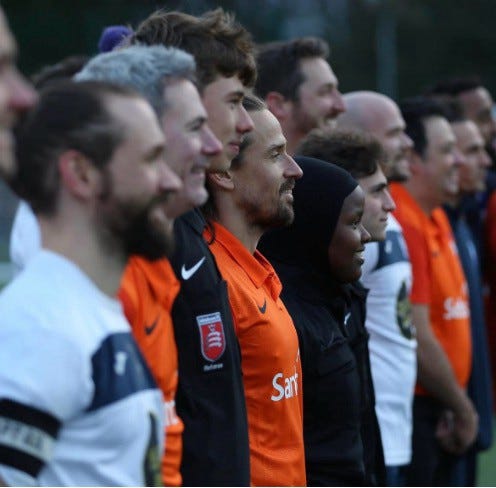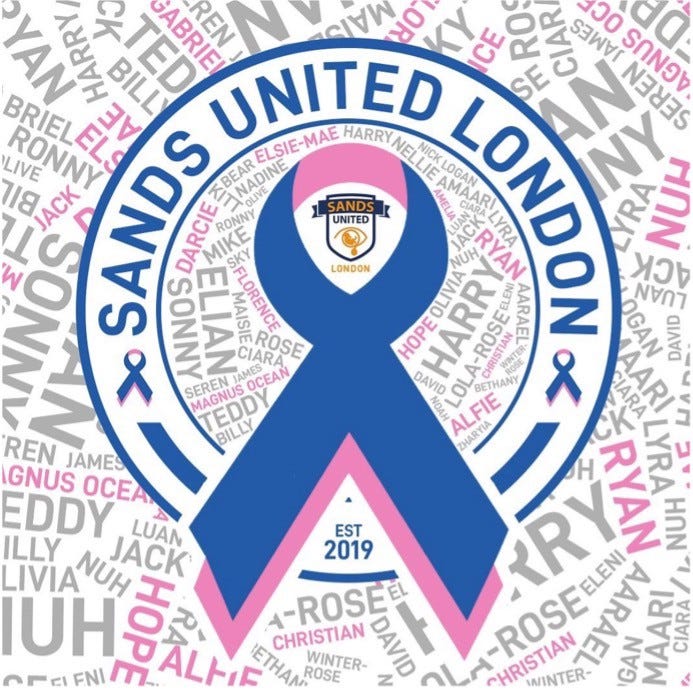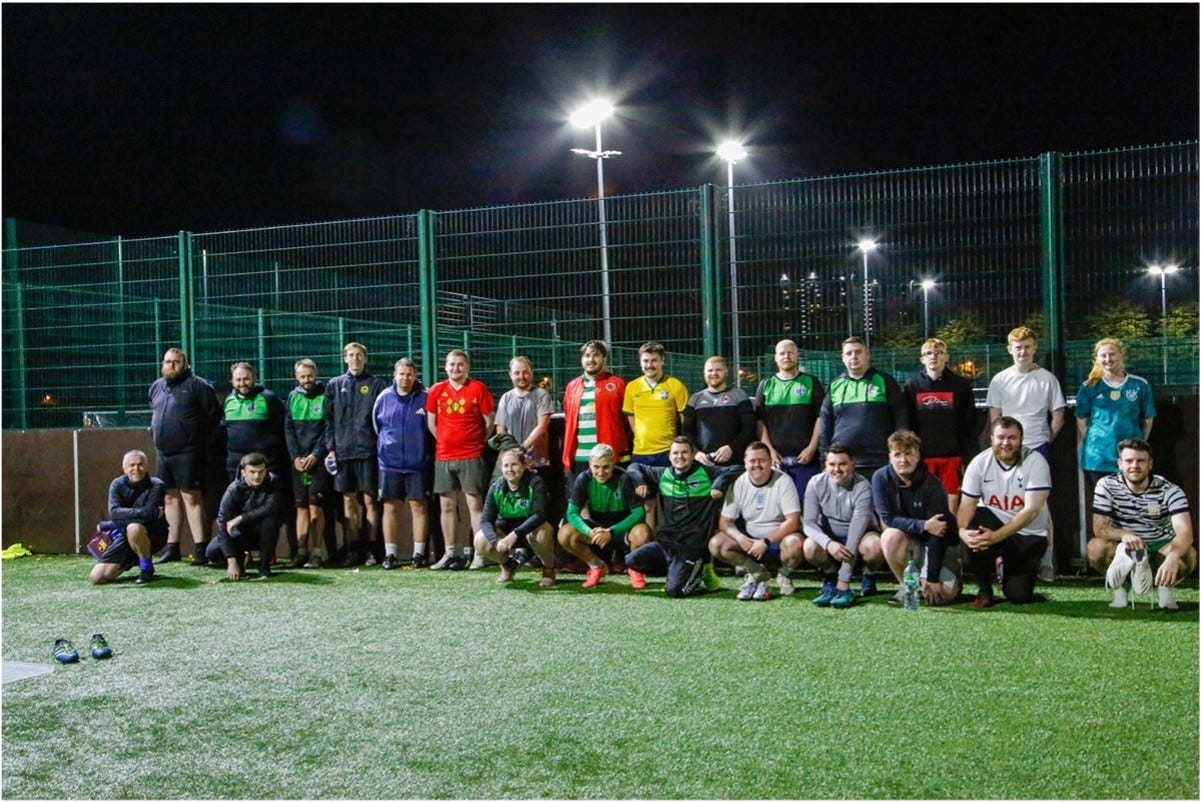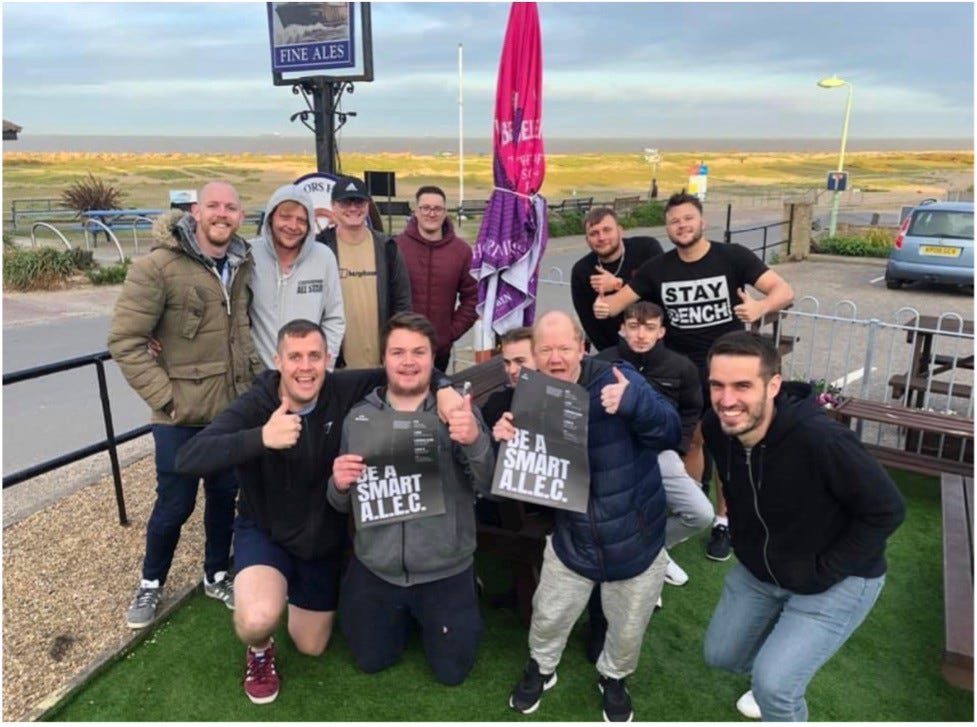Scoring against stigma: football tackles the taboo of men’s mental health
In England, 1 in 8 men suffer from a mental health problem, but these clubs are providing its members with a ‘wonder drug’
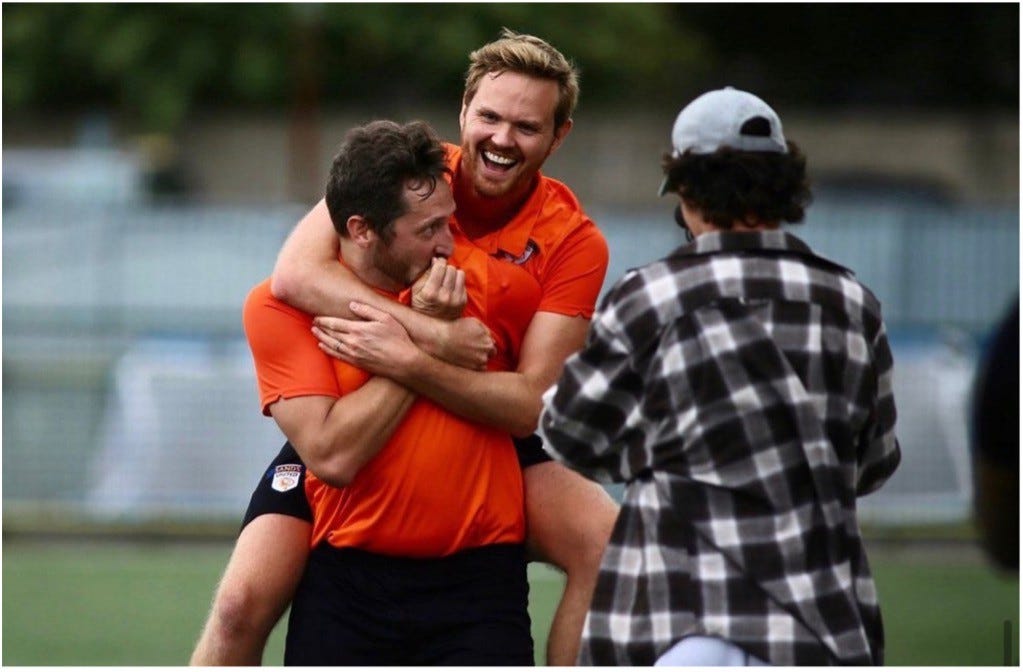
Suicide is the leading cause of death for men under the age of 50. Men are three times more likely than women to take their own lives. In England, 1 in 8 men suffer from a common mental health problem. We could quote these statistics daily, we could shout them from the roof tops, but what is actively being done to change them? The community sports teams being set up across the country may be the mental health “wonder-drug” that men need.
According to the mental health charity Mind, men tend to prefer informal community-based interventions and physical activity rather than medication or therapy when it comes to treating their mental health. In fact, only 36% of NHS referrals to therapy are for men. It has also been found that men are up to three times more likely than women to become dependent on alcohol and report frequent drug use. Therefore, it is evident that men are not receiving the help that they desire and the effects of this is often devastating. As a result, it is becoming more and more necessary to intervene before it gets to this stage. Sport England have gone as far as to describe exercise as a “wonder-drug” in preventing and managing mental health.
The sport itself is not usually associated with empathy, but times are changing and football teams up and down the country are doing their bit to ensure men feel supported in their battles, no matter what struggles they are facing. Member of Sands FC London, Shareef Mani believes that finding his football team “must have been fate, it must have been written”. Every 90 minutes- the length of a football match- a baby dies shortly before, during or soon after birth. Sands United is a unique organisation, setting up a total of 33 football teams across the UK with the aim of bringing together men who have experienced the tragedy of baby loss, encouraging them to not suffer in silence.
Shareef joined Sands FC London exactly one year after the loss of his baby boy in October 2019, he found that “suffering a stillbirth means you have a lot of questions and not a lot of answers. You never get that level of closure you need.” He believes that, for him, the traditional routes of support such as seeking help from a GP or seeing a counsellor, was quite ineffective. Shareef, who is now co-manager of the team, says that this is “solely because a few years ago I wouldn’t have been able to tell you right from left, because I just didn’t want to speak about anything.” The team offers a safe and supportive environment for players “to channel their emotions on the pitch, it allows each member to play for the name underneath the crest.” In order to commemorate the babies that have passed away, their names are embroidered underneath the crest on all of the kits across the country. “It’s bittersweet that such a team has to exist. It is an exclusive club which nobody wants to be a part of but ultimately it’s a lifetime membership.” Shareef wants to highlight that it is not an “ordinary Sunday league or grass roots football team” and as much as the team is a charity, it is also a community where everybody, regardless of ability and background, is accepted and welcomed. It is his belief that “it takes a level of bravery and strength to access support. Stronger is not the man who goes to the gym. Iron strong mentality starts from the head and the heart”.
Co-founder, Johan Hargreaves, set up the London team following the traumatic loss of his daughter Hope in 2018. Opening up, Johan says that at the time he “didn’t feel comfortable talking to people about it” so felt as though he needed to “just get back to life”. He found that the already established support routes within the community were mainly women focused, with a few routes for couples which, for him, “didn’t feel right”. After hearing about the Sands United organisation on BBC’s The One Show, he became inspired to set up a London based team. At the time he could only gather around 5 members, but with the support of others, word of mouth and social media, Sands FC London now has over 50 members who all gain a sense of support knowing that the person playing opposite them has gone through a similar thing. “It’s less about the football and more about the talking afterwards”, Johan believes that “seeking help from a counsellor or a GP can be a big ask for a man”. He confirms that “none of us are counsellors. We just listen.”
The organisation, which was initially set up by Rob Allen in Northampton, has been recognised for its ongoing nationwide positive impact on the mental health of men who have lost babies, and has been awarded with a Pride of Britain Award 2021.
Men all over the world face various barriers when it comes to seeking help for their mental health, as a whole, it’s become a taboo subject. Many may fear that accessing traditional forms of support will have an impact on their sense of masculinity and how they are viewed by others. There are countless factors which can impact an individual’s mental health, so it is important that all men feel that can access sports teams for support, regardless of what mental health battle they are facing. Research has suggested that many men benefit from a competitive outlet and that sports teams are a way to provide that release.
In recognition of Mental Health Awareness Week 2020, Connect Sport created 5-a-side football teams across the UK, made up of various charities and grass roots organisations, which aim to promote and preserve positive mental health among men. In Blackburn, Blokes United FC offer free drop-in games on Monday and Thursday evenings. The team provides a network of people who can be relied upon for a chat and a kick about. In Edinburgh and Glasgow, Time to Tackle provides football-orientated support groups for men who are struggling with their mental health. They meet weekly for games and ensure they check in on each player afterwards. Founder Aaron Connolly recognises that for some people, football can be a toxic environment, so is reassuring in the fact that the games are for fun and that everyone can play. Other teams created by Connect Sport include Life United FC in Yorkshire, and KickStart FC based in Wiltshire, both of which also aim to change the stereotypes associated with men’s mental health and “create a welcoming environment for anyone who needs to get something off their chest.”
But it’s not just charities, already established local football teams across the UK are beginning to see the importance in including initiatives which make sure that the men within their teams feel supported with their mental health. After all, the World Health Organisation have predicted that by 2030 depression will become the number one cause of ill health and premature death worldwide, so there’s no time to lose.
The leading mental health charity Movember, which has had hair raising impact for 18 years running, encourages individuals to attempt to grow a moustache or walk and run 60km throughout the month of November to raise funds and awareness for men’s mental health and prostate cancer. This year alone, 220,000 men sported moustaches in aid of funding health projects and ground-breaking research. The organisation says that “men are dying too young; we can’t afford to stay silent.”
UCL football club is one of many which takes part in Movember. The team have been fundraising for men’s mental health since the loss of one of their teammates, Louis Carr, who tragically took his own life in 2018. In doing their best to ensure Louis’ memory lives on, last year the team raised around £12,500 for the charity.
Smaller village teams are also doing their bit for men’s mental health. Martin McGuiness, team captain of Kessingland FC, has seen first-hand that “the feeling of being part of something is vital for somebody struggling, just belonging to a team is having a positive impact on the mental health of most of the guys”. He shares the fact that “quite a few of the lads, particularly if they don’t have partners or families, really do structure their whole week around training, games at the weekend and the post-match socials.” The team based in Suffolk, takes part in Movember yearly and, with support from the organisation CALM (Campaign Against Living Miserably), has started regular meet ups and a dedicated Facebook messenger group which allows the players to open up about their mental health and wellbeing. The charity Mind has confirmed that men are much more likely to seek support if it is made available online. Martin says, “the support that the guys have given me, even just in that Facebook chat, has been invaluable”. He went on to explain how the first in person meet up was “a real eye opener in terms of the seriousness of what some of the lads are facing”. Encouraging the team to take part in Movember, not only sparks conversation and is a motivator for exercise during the winter months, but it also “adds a bit of light relief when people turn up to training or games with an awful moustache”. Martin advises other captains that they need to be confident enough to get the ball rolling and start the mental health conversation.
It is important to be aware of the signs to look out for in yourself and your loved ones when it comes to mental health. Some symptoms of depression, for example, appear more commonly in men than they do in women. These symptoms can include irritability, sudden anger, increased loss of control, risk-taking and aggression.
As well as this, the WHO (World Health Organisation) has discovered that men employed in male-dominated industries may be particularly vulnerable to common mental health conditions. They say that the risk factors can include isolated work, excessive or irregular workloads, poor physical conditions, and lack of control in the workplace. Football, and other sports teams, have the ability to provide a release from those workday struggles, and in doing so offer a competitive environment for men to benefit from.
The Football Association is aware of the extent of the problem and have found that there are millions of people involved in the football industry with mental health problems. For instance, Watford left-back Danny Rose has opened up about suffering from depression triggered by injury and family tragedy. The Premier League player says that the mental illness left unable to get out of bed and on medication for months. Another recent example is Yeovil Town captain Lee Collins, who at the age of 32 took his own life in March this year following struggles with alcohol. Other high-profile footballers include Gary Speed, Ryan Giggs and Rio Ferdinand. These players and many more have all experienced their own struggles and battles when it comes to mental health.
So, if even the most popular footballers are beginning to open up about the realities of mental health for so many men, there’s no reason why it needs to be such a taboo subject anymore. The FA recognise the important role that sport can play in people’s recovery in helping to manage symptoms and improving quality of life. They vow to deliver social inclusion within football at all levels, so that everybody can feel welcomed, regardless of their background. Along with other sporting bodies, in 2015, the FA signed the Mental Health Charter for Sport and Recreation, in order to tackle mental ill-health and the stigma surrounding it.
Whether it’s a football team created to specifically to benefit the mentality of men or just your ordinary local team, turning up can break the silence or simply just provide an escape. It takes courage to access both professional and community support, but ultimately it is the first step in protecting and bettering mental wellbeing. Maybe it’s a kick about a day that will keep the doctor away.
While local sports teams want to help better men’s mental health, it’s important to bear in mind that they are not professionals. If you or a loved one requires immediate mental health support:
Call the Samaritans for free at any time on: 116 123
National Suicide Prevention Help UK is also available 24/7 on: 0800 689 5652
Urgent local NHS services are accessible through the website:
https://www.nhs.uk/service-search/mental-health/find-an-urgent-mental-health-helpline



